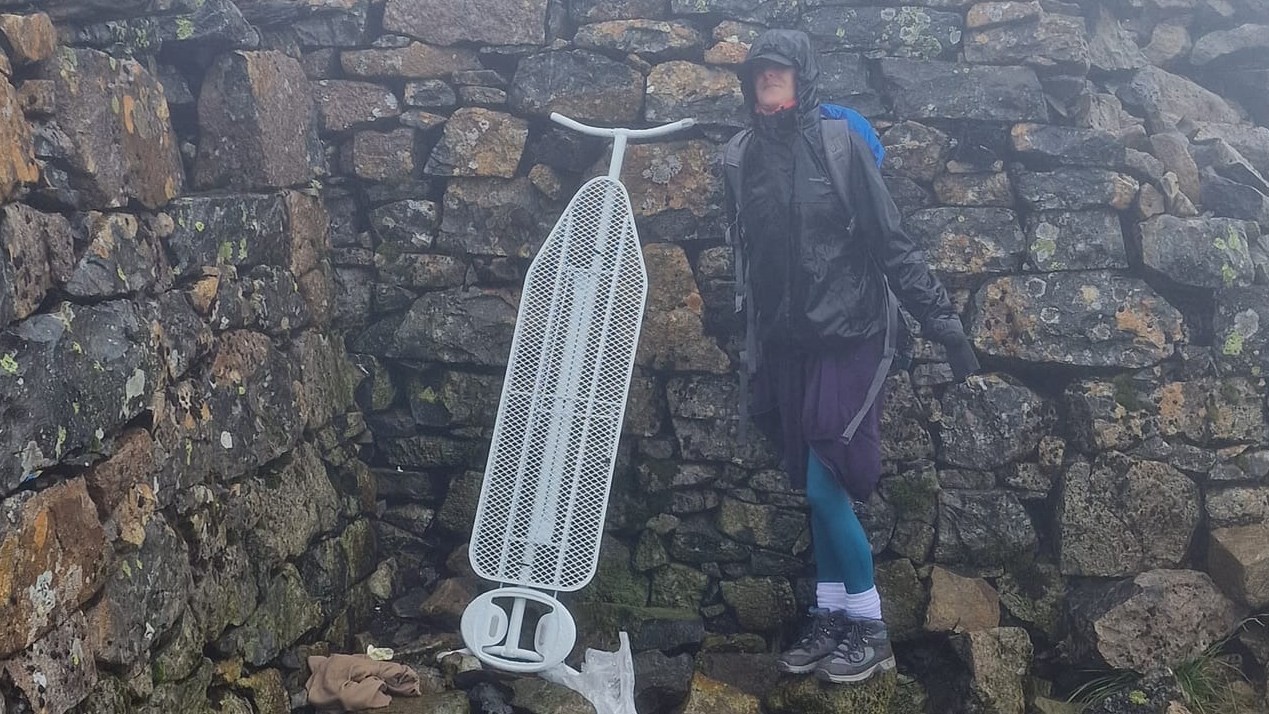‘Boris Johnson has opted out of shame’
Your digest of analysis and commentary from the British and international press

A free daily email with the biggest news stories of the day – and the best features from TheWeek.com
You are now subscribed
Your newsletter sign-up was successful
1. What does it take for a politician to resign?
Hugo Rifkind in The Times
on the loss of shame
“Most of us are constrained by rules, and morals, and shame, and the expectations of others,” writes Hugo Rifkind in The Times. “The Johnson-Cummings epiphany was that you can just opt not to be,” he writes. “Don’t appear before that select committee, don’t answer that question, don’t keep that promise, don’t sack that colleague, don’t admit you broke the rules, don’t resign when it can no longer be denied,” continues Rifkind. “For an extreme example of how things used to be, consider the case of Mark Harper, who resigned as an immigration minister in 2014 after discovering that his cleaner didn’t have the right to work in the UK,” says Rifkind. “Imagine that today. I mean, it’s inconceivable, right?”
The Week
Escape your echo chamber. Get the facts behind the news, plus analysis from multiple perspectives.

Sign up for The Week's Free Newsletters
From our morning news briefing to a weekly Good News Newsletter, get the best of The Week delivered directly to your inbox.
From our morning news briefing to a weekly Good News Newsletter, get the best of The Week delivered directly to your inbox.
2. Who reads the Daily Mail?
Ed West in UnHerd
on an American niche
“The Mail is purest distilled Middle England,” writes Ed West in UnHerd, “It’s Harry Potter’s uncle Vernon and aunt Petunia; it’s social climber Hyacinth Bucket; it’s Aunt Spiker and Aunt Sponge.” The newspaper is 125 years old today “and for most of that time has represented the soul of a particular kind of England, read in the golf courses of Surrey, the semis of suburban Essex, the pub gardens of Dorset”, writes West. While the paper is “not exactly the conscience of Middle England” it is “certainly a guiding spirit”. Its power in the UK, however, is “waning”, but it has found its “niche” in the US, which has “mainstream news sites that are both dreadfully boring and ideologically dishonest”, writes West. In contrast with those sites, the Mail at least “tries to tell a story – which is, after all, what journalism should be about”.
A free daily email with the biggest news stories of the day – and the best features from TheWeek.com
3. Boris Johnson must confront the worst-case scenario for the Union
Sherelle Jacobs in The Daily Telegraph
on a dignified end
“We may be reaching the endgame of the Union. Its demise in coming years is not inevitable – but it is plausible,” writes Sherelle Jacobs in The Daily Telegraph. “The Prime Minister may well stave off a Scottish exit,” writes Jacobs, but “it is also time for No 10 to consider seriously the worst-case scenarios.” The Conservatives would fare best if they “strike a respectable tone” in their fight to keep Scotland in the Union, Jacobs writes. “If it becomes clear that the majority of Scottish people, and not just the SNP, genuinely want a new referendum, the PM must not resist one.” And while it is “worth defending wholeheartedly”, English Tories must accept “that a dignified end would be better than a disastrous collapse”.
4. Labour’s lost voters clamour for belonging – but will the party answer them?
Julian Coman in The Guardian
on ‘Red Wall’ values
“In the wake of Labour’s terrible, soul-destroying election defeat in 2019, the need to ‘listen’ to the red wall constituency voters who had deserted the party became an instant truism,” writes Julian Coman in The Guardian. “As the first electoral test of Keir Starmer’s leadership approaches this week, how much of that kind of listening can truly be said to have taken place?” he asks. “For most of the working-class voters who have turned their back on Labour over the last 20 years, ideas of Britishness, England, place, pride, honour and industry have nothing to do with the right. They are a way of talking differently about values of the left,” Coman writes. If Labour “wishes to win back hearts and minds in the constituencies it has lost, the left cannot simply write this language off as the intellectual property of the right”.
5. Not all blue-collar workers will find green-collar jobs
Sarah O’Connor in the Financial Times
on net zero reality
“Today’s blue-collar workers are tomorrow’s ‘green-collar’ workers – or so politicians would have us believe. Plans to combat climate change are increasingly touted as job creation schemes,” writes Sarah O’Connor in the Financial Times. While it may be “politically savvy to tie climate change policies (or indeed any policy) to the promise of new jobs” governments “need more than boosterism to manage the transition well”, writes O’Connor. “The truth is that the road to ‘net zero’ will destroy jobs in some carbon-intensive sectors, even as it creates new ones elsewhere.”
-
 Switzerland could vote to cap its population
Switzerland could vote to cap its populationUnder the Radar Swiss People’s Party proposes referendum on radical anti-immigration measure to limit residents to 10 million
-
 Political cartoons for February 15
Political cartoons for February 15Cartoons Sunday's political cartoons include political ventriloquism, Europe in the middle, and more
-
 The broken water companies failing England and Wales
The broken water companies failing England and WalesExplainer With rising bills, deteriorating river health and a lack of investment, regulators face an uphill battle to stabilise the industry
-
 NHS tells Scots to walk like penguins
NHS tells Scots to walk like penguinsTall Tales Walk like penguins in the snow, says NHS
-
 Woman accidentally puts nan in washing machine
Woman accidentally puts nan in washing machineTall Tales And other stories from the stranger side of life
-
 Woman solves 'rude neighbour' mystery
Woman solves 'rude neighbour' mysteryTall Tales And other stories from the stranger side of life
-
 'Extreme ironing' blamed for Ben Nevis board
'Extreme ironing' blamed for Ben Nevis boardTall Tales And other stories from the stranger side of life
-
 Screaming Beatles fans embarrassed George Harrison’s mother
Screaming Beatles fans embarrassed George Harrison’s motherfeature And other stories from the stranger side of life
-
 Bangladesh dealing with worst dengue fever outbreak on record
Bangladesh dealing with worst dengue fever outbreak on recordSpeed Read
-
 Glacial outburst flooding in Juneau destroys homes
Glacial outburst flooding in Juneau destroys homesSpeed Read
-
 John Kerry in Beijing: how red China is turning green
John Kerry in Beijing: how red China is turning greenfeature Climate talks set to resume between Washington and Beijing this week